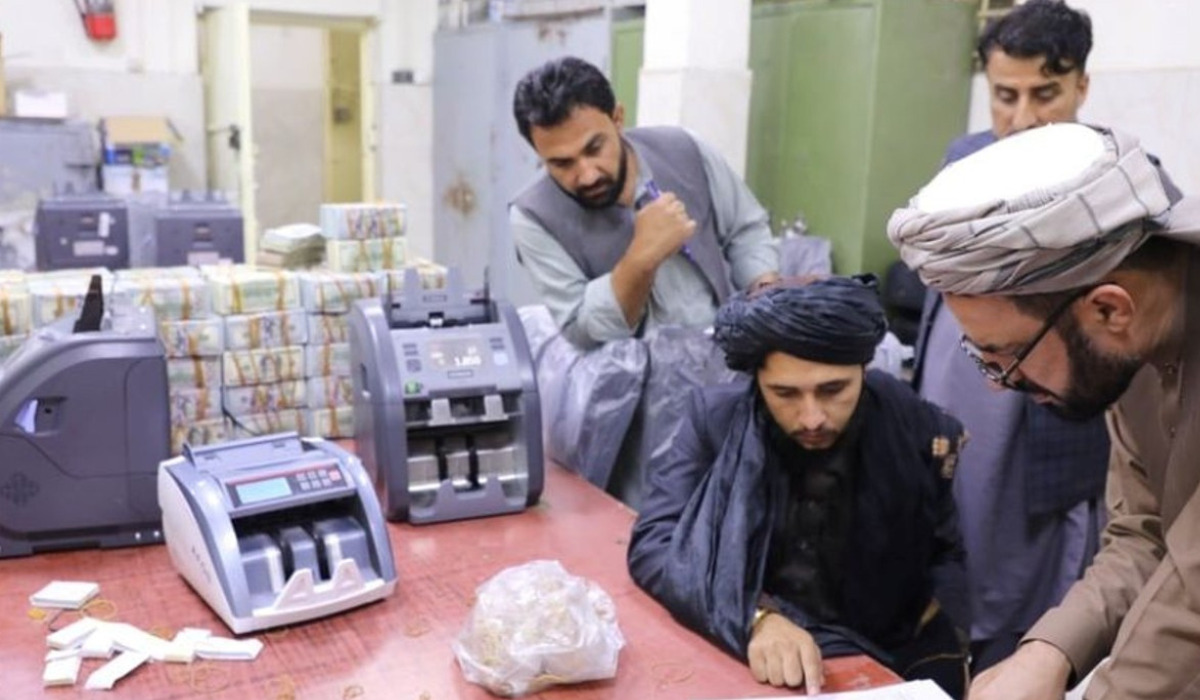An assessment of Afghanistan’s central bank, funded by the United States, has uncovered significant deficiencies in its independence from the Taliban administration, as well as serious shortcomings in its efforts to combat money laundering and terrorism financing, a US watchdog said in a report to Congress on Tuesday.
The evaluation had remained undisclosed until now, but had been reported by Reuters last month. Based on the report’s conclusions, Afghanistan’s central bank failed to receive Washington’s approval for the release of central bank assets held in a $3.5 billion trust fund in Switzerland.
Reporting to Congress on Tuesday, the US Special Inspector General for Afghanistan Reconstruction (SIGAR) highlighted the results of the assessment in their quarterly report and revealed its concerns about the management of Afghanistan’s central bank, officially known as Da Afghanistan Bank (DAB).
The assessment found that DAB exhibited “insufficient independence from the Taliban regime” and displayed inadequacies in its efforts to counteract money laundering and terrorism financing, as stated by SIGAR.
Conducted by an external contractor, the review received funding from the US Agency for International Development (USAID).
The report’s mention of the central bank’s lack of independence seemingly pertains to the involvement of three Taliban officials who oversee the bank and are subject to sanctions imposed by both the US and the United Nations. These concerns, coupled with worries in various global capitals, have contributed to a standoff over the Taliban’s demand for the release of DAB’s funds frozen in foreign countries following their ascension to power after the US troop withdrawal in August 2021.
Approximately half of the roughly $7 billion frozen by the US Federal Reserve Bank of New York was allocated to the Swiss trust fund, while efforts are underway to recover the remainder through lawsuits targeting the Taliban, filed by families of victims of the September 11, 2001 attacks. The Taliban had harbored members of the al-Qaeda group responsible for orchestrating those attacks, says the report.
Approaching the second anniversary of the US withdrawal from Afghanistan and the Taliban’s resurgence, the SIGAR report touched upon ongoing US assistance, challenges caused by the Taliban’s interference with aid-delivering NGOs, the gradual erosion of women’s rights, and a burgeoning humanitarian crisis.
Despite these difficulties, the United States has retained its position as the largest donor to the Afghan populace, allocating more than $2.35 billion since the Taliban’s takeover in August 2021, SIGAR says.
As of June, SIGAR’s calculations indicate that around $1.7 billion out of the allocated $112.4 billion for the six primary active reconstruction accounts remains available for potential disbursement.
This amount encompasses $580 million earmarked but unused across 86 active projects, $557 million designated for future projects, and $545 million assigned but unutilized in relation to inactive, suspended, or terminated contracts.
Inspector General John F. Sopko has cautioned against overlooking the lessons from the Afghanistan venture, emphasizing that failing to learn from such experiences would lead to their repetition. He noted, “Many would like to forget our Afghanistan experience and never discuss it again. However, if we do not learn the truths from that failure, we will repeat them.”





